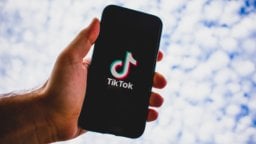British broadcaster The BBC has told its employees to uninstall TikTok from their work phones shortly after the UK government imposed a ban of the app on government-issued devices, citing national security risks.
“We don’t recommend installing TikTok on a BBC corporate device unless there is a justified business reason. If you do not need TikTok for business reasons, TikTok should be deleted,” BBC said in a guidance to staff on Sunday (March 19), The Guardian reported the same day,
The UK’s national broadcaster reportedly told staff that its decision “is based on concerns raised by government authorities worldwide regarding data privacy and security.”
The BBC reported on Monday (March 20) that it would continue using the app for “editorial and marketing purposes for now”.
A TikTok spokesperson is quoted by the BBC as saying: “The BBC has a strong presence on our platform, with multiple accounts from news through to music reaching our engaged community both in the UK and around the world.
“We believe these bans have been based on fundamental misconceptions and driven by wider geopolitics.
“We remain in close dialogue with the BBC and are committed to working with them to address any concerns they have.”
“We don’t recommend installing TikTok on a BBC corporate device unless there is a justified business reason. If you do not need TikTok for business reasons, TikTok should be deleted.”
BBC
On Thursday (March 16), the UK’s Cabinet Office announced a ban of TikTok on government electronic devices after ministers ordered a security review of the app to look at the potential vulnerability of government data from social media apps on devices.
The move follows similar restrictions imposed by the European Commission and the US and Canadian governments recently.
“The security of sensitive government information must come first, so today we are banning this app on government devices. The use of other data-extracting apps will be kept under review,” said Chancellor of the Duchy of Lancaster Oliver Dowden.
Dowden added that restricting the use of TikTok on government devices “is a prudent and proportionate step following advice from our cyber security experts.”
“We believe these bans have been based on fundamental misconceptions and driven by wider geopolitics.
TikTok spokesperson, speaking to BBC News
The UK government questioned TikTok’s requirement for users to give permission for the app to access data stored on devices.
“Allowing such permissions gives the company access to a range of data on the device, including contacts, user content, and geolocation data,” says the Cabinet Office.
The ban only applies to government-owned devices and not to employees’ personal devices.
The BBC is a public corporation under the UK’s Department for Culture, Media and Sport.
“The BBC takes the safety and security of our systems, data and people incredibly seriously. We constantly review activity on third-party platforms – including TikTok – and will continue to do so,” a company spokesperson was quoted by The Guardian as saying.
However, the use of TikTok on corporate devices are still allowed for editorial and marketing purposes, although its staff will have to use only designated TikTok phones if they need it for research purposes, The Guardian reported.
The BBC is the latest national broadcaster to ban TikTok from work devices following a similar move by Denmark’s DR earlier this month.
The developments come as TikTok repeatedly says that it does not share user data with China.
The Wall Street Journal reported last week that the US government has told the ByteDance-owned app that it faces a potential ban in the US unless its Chinese owners divest their stakes in the company.
In response, TikTok said a forced sale would not address the perceived security risk.
“If protecting national security is the objective, divestment doesn’t solve the problem: a change in ownership would not impose any new restrictions on data flows or access,” TikTok spokeswoman Brooke Oberwetter was quoted by the WSJ as saying.
“The best way to address concerns about national security is with the transparent, US-based protection of U.S. user data and systems, with robust third-party monitoring, vetting, and verification, which we are already implementing,” Oberwetter added.
Music Business Worldwide





